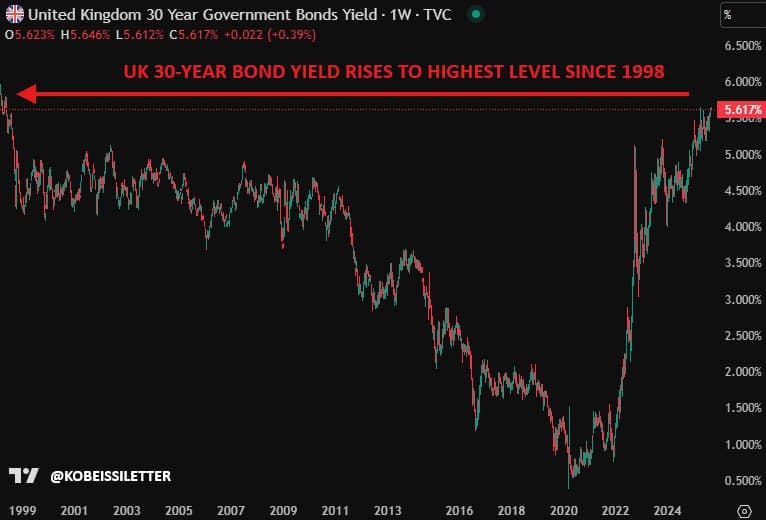The yield on a 30-year bond in the UK surged to 5.64% today, marking its highest level since 1998. This dramatic rise reflects the UK"s deteriorating fiscal situation, as yields are now 15 times higher than the historic lows seen in 2020.
Government forecasts indicate that public spending is set to exceed 60% of GDP, a significant increase from 53% during the pandemic. Meanwhile, revenue as a percentage of GDP is projected to decline slightly, dipping below 40%, compounding the fiscal challenges ahead.
The UK"s national debt trajectory is alarming, with estimates suggesting it could reach 274% of GDP by 2073. This scenario would create a staggering deficit of 21% of GDP, with interest payments alone consuming approximately 13% of GDP—an unsustainable fiscal collapse.
Inflation is also on the rise, with the Consumer Price Index (CPI) hitting 3.8% in July and expectations for August predicting rates exceeding 4%. This inflation rate is double the Bank of England"s target. Despite these pressures, the Bank of England has cut interest rates to 4%, citing weak economic growth as a factor in their decision. The UK economy flatlined in Q3 2024, raising fears of stagflation for the first time since 2008. As deficits grow and inflation persists, the UK"s economic stability hangs in the balance, echoing recent developments in fiscal policy challenges worldwide.







![[Video] Gunfire between Iraqi security forces and Sadr militias in Baghdad](/_next/image?url=%2Fapi%2Fimage%2Fthumbnails%2Fthumbnail-1768343508874-4redb-thumbnail.jpg&w=3840&q=75)
